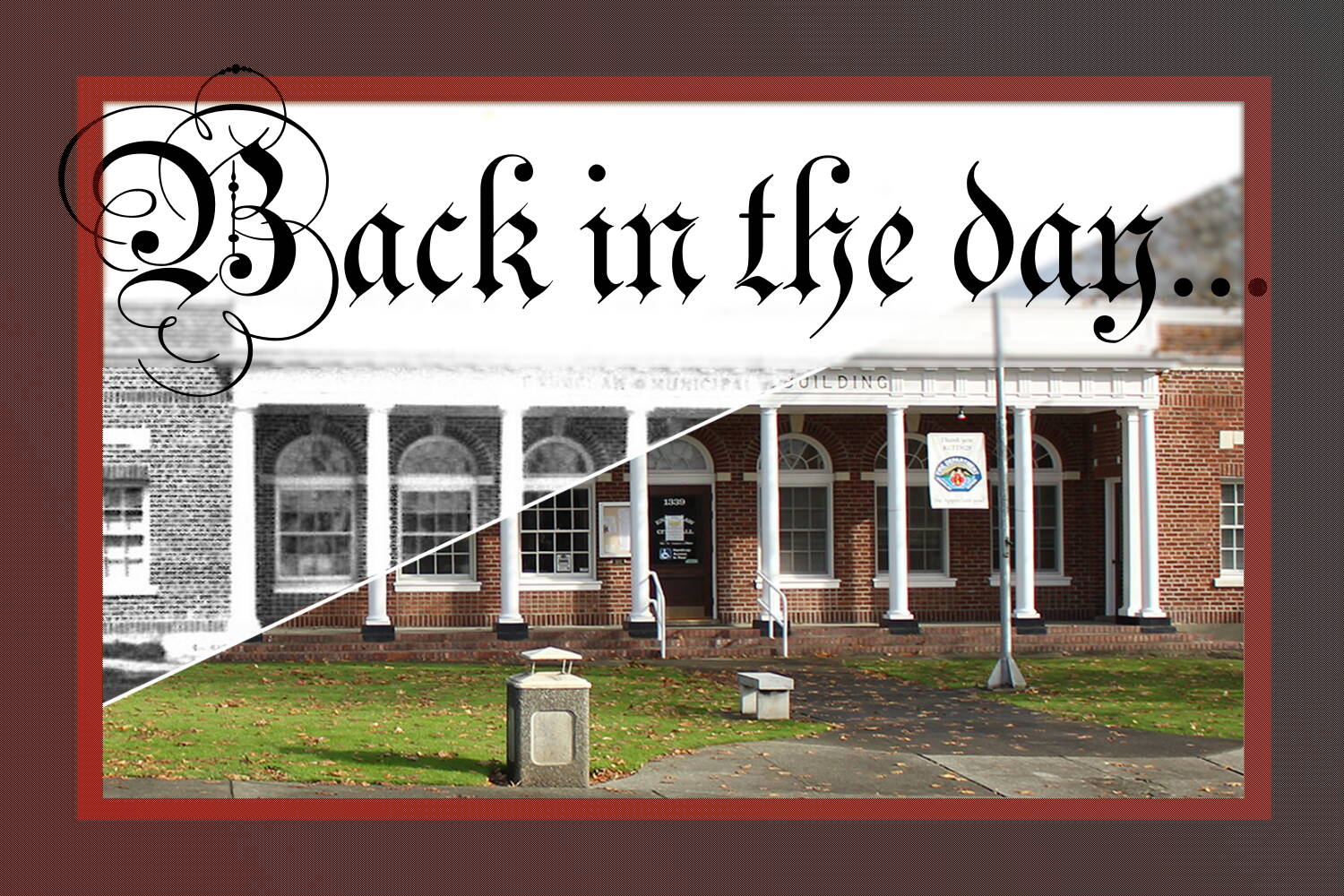Back in the mid 1970s, teaching jobs were scarce. I began to look for other ways to earn a living, so I decided to become a farrier—a horseshoer. One of my community college students earned his living as a horseshoer—a farrier. This student taught me the trade over a summer. That experience introduced me to the world of horses.
My local history story this month deals with a time in Enumclaw when horses were the major form of transportation and heavy labor.
Imagine that you lived in Enumclaw at the end of the 19th and into the early 20th century. You needed to get from one place to another. The roads were rarely paved, and they were often muddy. A horse could be hitched to a wagon to take you and your milk or crops from your farm to town. With a horse you could pick up farm supplies or food or go to church on Sundays with your family. Horses were also used as stump pullers as you worked to convert your land from a forest to a pasture or field ready for planting crops.
But, if you owned horses, you also had to spend a great deal of time feeding and watering them. You had to clean out the stalls of the never-ending supply of horse manure which you would carry in a wagon pulled by a horse to fertilize your fields.
Horses, like humans, got sick and needed care from a vet. Their hooves had to be trimmed or shoed, which required that you do it yourself, or go to the blacksmith in town who charged for the service. Every town had at least one blacksmith. There would also be tack shops that sold harnesses and saddles.
Back then, you could buy or sell a horse at an auction. (The Enumclaw Sales Pavilion on the road to Auburn did not come into existence until 1938.)
Injuries from horses were common. Horses in the city also created problems. Enumclaw had to pass an ordinance that forbade the dumping of horse manure in alleys. (John Anderson. “Incorporation Through World War II: Enumclaw from 1913 through 1945”: The Patch, March 19, 2013)
There is a story about runaway horses in Nancy Irene Hall’s book, “In the Shadow of the Mountain”, that demonstrates the dangers of horse runaways in 1914:
“The people of the community were getting more than a little irate over the continued runaways and were starting to feel concern for their safety. ‘An exciting runaway occurred on Cole Street Monday, when a team belonging to the Inglis Bros. [owners of a newly opened shingle company] attached to a two-seated carriage from Jones’ livery bolted and made a record run from the livery barn to Myrtle Avenue…. Just beyond Myrtle Avenue, they ran head-on into a team hauling wood. The poles of the two wagons passed between the horses, so that none of them were impaled, and the carriage pole was thrust up on the loaded wagon narrowly missing the driver. When the tangle was extricated, it was found that the damage consisted of a broken neck yoke…. How all this could transpire without killing or maiming either men or horses is some mystery. The starting of the runaway was said to have been caused by one of the horses being hitched for the first time to a covered rig without blinders.’”
In a story I ran a few months ago, a horse that was rammed by another team ended up being impaled by the carriage pole and dying.
Eventually, cars and trucks replaced horses. Roads were paved to make driving easier and less muddy. As we all know, motorized vehicles solved the problems of horse manure and runaway teams, but new non-organic hazards soon replaced them. Change is not always better, it’s just different.
I eventually found a full-time job teaching high school history at Sumner High School, but my experience as a farrier opened up the world of horses to me. Horses today are expensive pets and hobbies. Greg Pile, the long-time agriculture teacher at Sumner High, once told me that if you want to know what it is like to own a horse, take a $100 bill and burn it every week. And that was 25-years ago!


